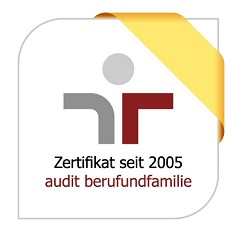PhD Student in Deep Learning for Rare Variant Genetics
Kennziffer: 2025-0147
- Heidelberg
- Full-time
- Computational Genomics and Systems Genetics

„Forschen für ein Leben ohne Krebs“ – das ist unsere Aufgabe am Deutschen Krebsforschungszentrum. Wir erforschen, wie Krebs entsteht, erfassen Krebsrisikofaktoren und suchen nach neuen Strategien, die verhindern, dass Menschen an Krebs erkranken. Wir entwickeln neue Methoden, mit denen Tumore präziser diagnostiziert und Krebspatient:innen erfolgreicher behandelt werden können. Jeder Beitrag zählt – ob in der Forschung, in der Administration oder der Infrastruktur. Das macht unsere tägliche Arbeit so bedeutungsvoll und spannend.
The Division of Computational Genomics and Systems Genetics is seeking from October 2025 a
You will be affiliated with the laboratory of Dr. Clarke, which is part of the Division of Computational Genomics and Systems Genetics at DKFZ (https://steglelab.org). The project is executed in collaboration with the main partner of the TARGET-AI project at Helmholtz Munich, as well as supporting groups at the University of California, Berkeley and the German Human Genome-Phenome Archive. The position will also be connected to a vibrant local ecosystem for data science and machine learning.
Ihre Aufgaben:
The research group of Dr. Brian Clarke is looking for a highly motivated doctoral student to join an ambitious project aimed at building machine and deep learning models to study the genetics of human disease. Funded as part of the Helmholtz AI program, the project TARGET-AI will bring together expertise from multiple research groups to advance the state-of-the-art in combining the most advanced techniques from deep learning/AI with rigorous statistical analyses, an area in which our group has a track record of success (see recent publications below).
The TARGET-AI project seeks to apply leading-edge techniques from deep learning and Bayesian modeling to gain insights into the genetic underpinnings of disease and improve genetic risk prediction. We seek to build on previous expertise and methods devised by our teams (see below), including incorporating architectures and principles from Bayesian neural networks and biological sequence models, including large DNA and protein language models. The project also aims to develop a prototype federated learning framework to enable meta-analysis of multiple large biobank datasets, all of this with the aim of increasing our sensitivity to unravel the complex genetic causes of disease and, in so doing, identify new therapeutic targets.
Recent relevant publications:
Clarke, B., Holtkamp, E. et al. Integration of variant annotations using deep set networks boosts rare variant association testing. Nature Genetics 56, 2271–2280 (2024). https://doi.org/10.1038/s41588-024-01919-z
Nappi, A. et al. Bayesian Aggregation of Multiple Annotations Enhances Rare Variant Association Testing. bioRxiv (2025). https://doi.org/10.1101/2025.03.02.641062
Ihr Profil:
The successful applicant should hold a master's degree or equivalent qualification in computer science, statistics, mathematics, physics, and/or engineering, or a degree in biological science with demonstrated experience in quantitative analysis.
We are looking for a range of talents and expertise, including in machine learning, mathematics, or statistics. Experience with one of the focus areas of the project, including deep learning, Bayesian modeling, and federated learning, is welcome.
Effective oral and written communication skills in English are required .
Our group values creativity, a rigorous scientific mindset, kindness, and positive team spirit. We encourage candidates from diverse professional and personal backgrounds to apply.
Unser Angebot:
- Hervorragende Rahmenbedingungen: modernste state-of-the-art Infrastruktur und Möglichkeit zum internationalen Austausch auf Spitzenniveau
- Zugang zu internationalen Forschungs-Netzwerken
- Doktorandengehalt mit den üblichen Sozialleistungen
- 30 Tage Urlaub
- Flexible Arbeitszeiten
- Möglichkeit zur Teilzeitarbeit
- Familienfreundliches Arbeitsumfeld
- Nachhaltig zur Arbeit: Vergünstigtes Deutschland-Jobticket
- Entfalten Sie Ihr volles Potenzial: gezieltes Training und Mentoring durch das DKFZ International PhD Program und den DKFZ Career Service
- Unser betriebliches Gesundheitsmanagement bietet ein ganzheitliches Angebot für Ihr Wohlbefinden
Sie sind interessiert?
Dr. Brian Clarke
Telefon: +49 (0)6221/42-4725
Bewerbungen per E-Mail können leider nicht angenommen werden.
Bitte beachten Sie auch, dass wir per Post eingereichte Bewerbungen nicht zurückschicken können.

